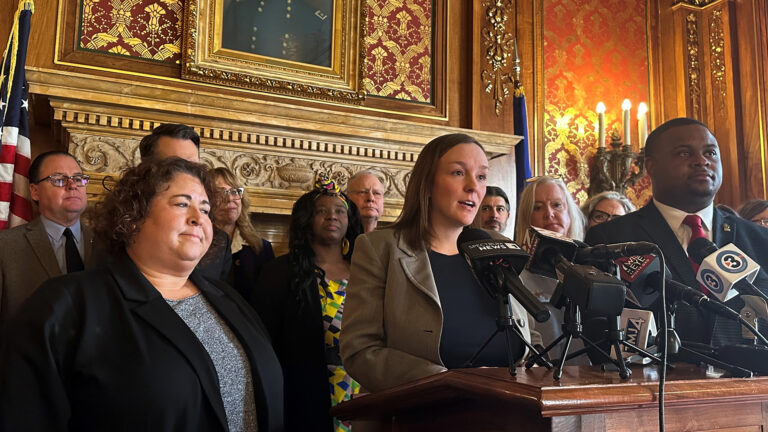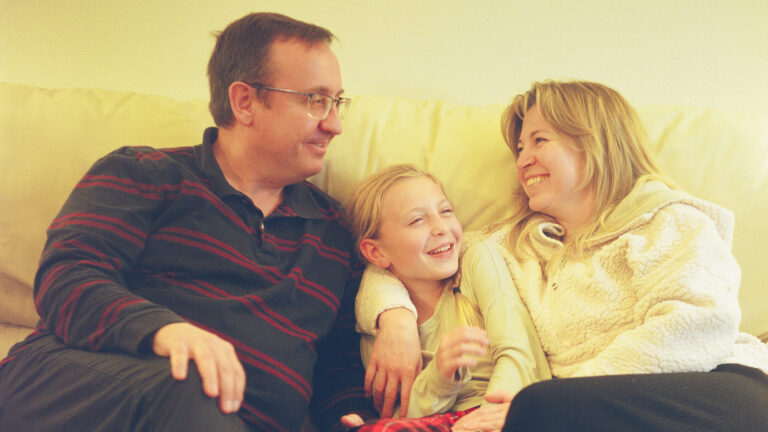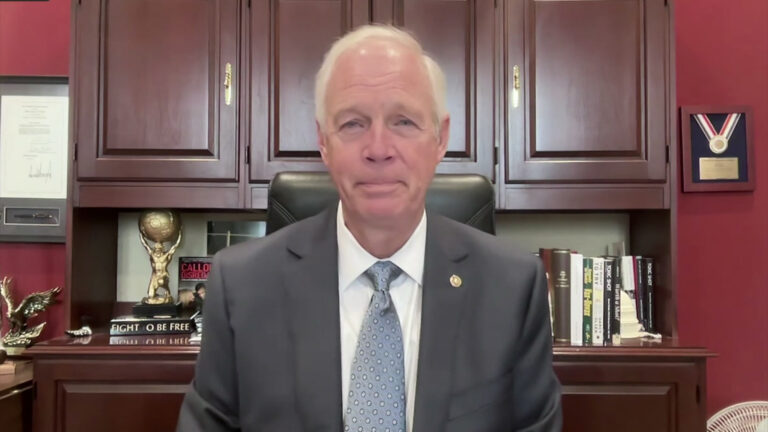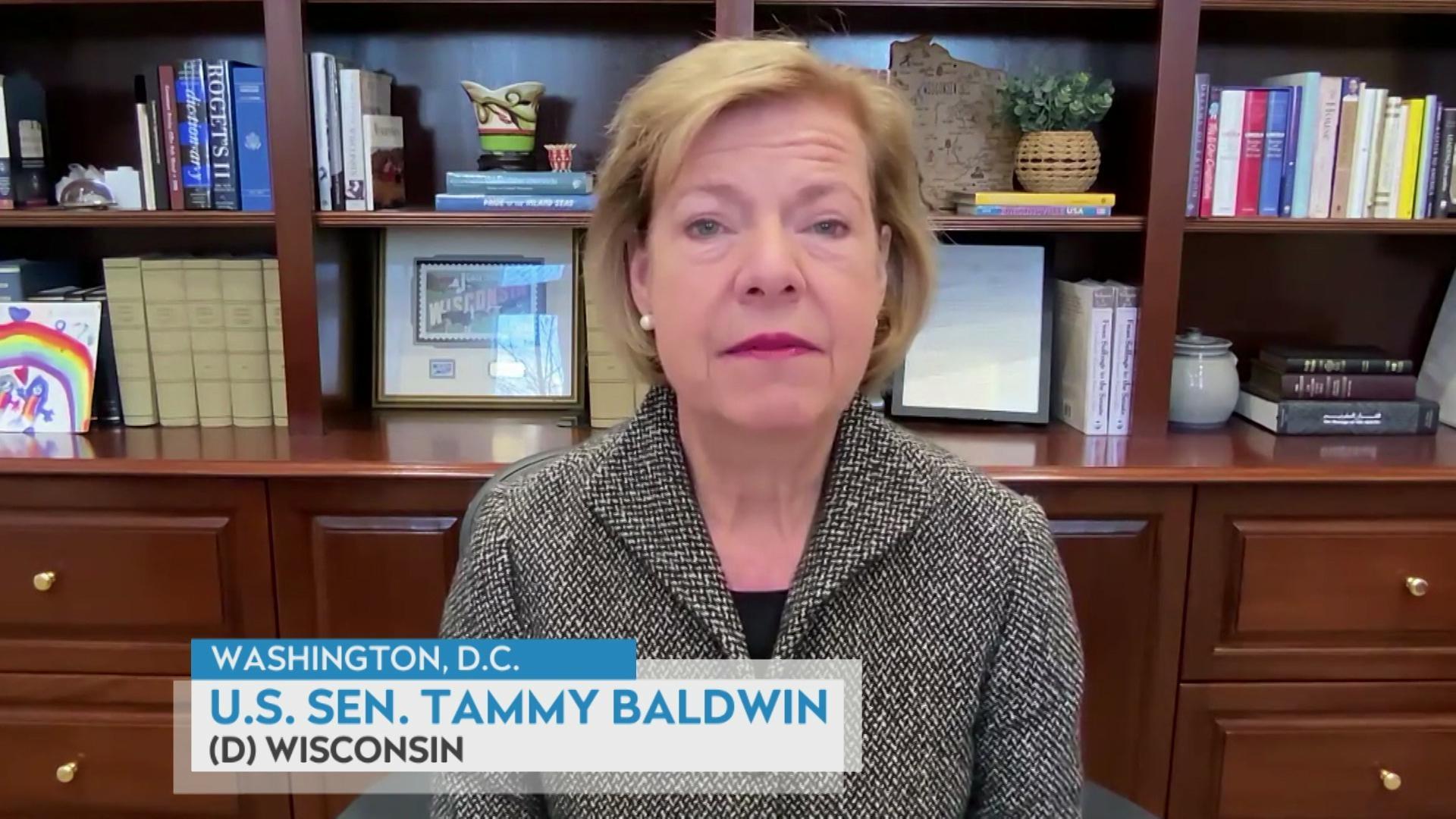Fred Harris on mental health risks of teen screen addiction
New Beginnings Counseling Center owner Fred Harris explains how teenagers increasingly struggle with mental health issues due to excessive screen time and efforts to address this type of addiction.
By Murv Seymour
November 26, 2024
VIDEO TRANSCRIPT
Murv Seymour:
How big of a problem is it, and what kind of progress are we seeing in that area?
Fred Harris:
So screen addiction and how big of a problem it is — I would say there's probably no progress. It's actually increasingly getting worse. I do think it depends on why it's happening with the youth, and they all have different reasons. So, the screen addictions are an escape from a world that they are probably not wanting to deal with. It's easy to escape and go into a place, so most of the youth are experiencing some form of mental health either that's happening, so you don't have to, you can escape into a world where no one knows you, you aren't behind. Another thing that I've noticed that's been told is like the FOMO effect, where a lot of kids want to just be involved. "I have to have my phone, 'cause what if they put something on Snapchat?" "I have to have this. What if I don't know?" And the parents, I feel, are defeated. They feel defeated, where they just give in.
Murv Seymour:
What's the danger in looking at your screen too much for teenagers?
Fred Harris:
Neurologically it stunts your growth in many ways. It really causes anxiety after a while. It can really cause social anxiety, not even how to show up in spaces and talk to people. Avoidant personality disorders, just not wanting to be around people. Impulsivity, because the anger and the rage around it. But neurologically, it just really increases their, like their mind of thinking and it stunts their growth developmentally.
Murv Seymour:
Do we have a barometer that we use to gauge what is too much, and is that different from teen to teen? How do you look at that?
Fred Harris:
Well, basically go off what the parents say, and then we assess what the kid says. But if you're looking at your phone, even when I'm in sessions and you have to look at it, you can't pay attention and you're so afraid to let it go, that's a problem. If you can't go to bed without your phone, turn it off, have it next to you, that's a problem. And if your parents can't get you to do your homework or anything else, that's a problem. You are willing to get your, get detention in school because you have your phone out — 'cause you know what? That's a problem. So, it starts to affect how you function in society. So you'll rather take the consequences than to just not have the phone.
Murv Seymour:
And whose job is it to get control of this, the parents or the student?
Fred Harris:
I think we try with the parents first, but by the time the student or the youth comes in, it's really hard, because I think that when they come in, the parents are now defeated.
Murv Seymour:
Is there an age range that you're seeing screen addiction? Like, how early does it start and what are you seeing there?
Fred Harris:
Teenagers, probably like 12, like around that, eighth grade. Yeah, going into high school age. Yeah, 'cause the ones that do have iPads and the younger ones, but their parents instill screen time. Or they have a cell phone — they take it away 'cause it's only for when we go to school. But the older ones, it's like full control.
Murv Seymour:
I'm curious now, what constitutes a screen? Like, what types of activities are we talking about when we talk about screen addiction?
Fred Harris:
Computers, cell phones, tablets, the television — so, any of those that you're already looking at and distracting is a screen addiction.
Murv Seymour:
Video games, is that in there too?
Fred Harris:
Yes.
Murv Seymour:
So what do you say to the parents that are looking for a way to maybe get some control back and find the happy medium with their kids? What are you telling 'em?
Fred Harris:
Changing the approach from negative reinforcement to positive. So, instead of, 'cause teenagers want their own autonomy, and with COVID, they missed out on a lot, so they feel like they have to have their phones. But instead of taking their punishment away and taking all of their screen time, they're only going to make them more angry. So, why don't you do something positive? "You don't use your phone for this amount of time," or, "You do this, then you get this reward." 'Cause teenagers love rewards — their pleasure brain, that's what they have in the front. When you're an adolescent, it's all about pleasure and it's all about yourself. So I kind of use those, and then just having structure and don't fall back on what you say.
Murv Seymour:
I've heard some folks talk about getting the kids under some sort of a contract, that sort of thing. Is that something that really works?
Fred Harris:
If the parents abide by the contract.
Murv Seymour:
And what kind of things would be in a contract that you'd just meet?
Fred Harris:
Yeah, I've had parents put, like, "If you do this in school," and they sit with the child and do it together. So, not they're doing it, and they present it to them, it's like, "We're going do it together." And this is, "If we get a call that you were tardy, then we're going to take away maybe your game." And then "If it's this, then we're going take away your game and this," you know? And it just adds up. Many agree to it, but the parents have to, a lot of kids say, "My parents aren't consistent."
Murv Seymour:
What's the worst case scenario that you've seen come out of someone having an addiction with screen time?
Fred Harris:
The anger towards their parents — throwing things, breaking things, threatening them, hitting them. Any way, yeah, just to give it to 'em, and the parents give in.
Murv Seymour:
And we love to move things forward in terms of looking at what the future holds. Are there any tools out there that we can look forward to that can help kids manage this kind of thing? What do you think's on the horizon in terms of treatment and helping kids cope with this kind of stuff?
Fred Harris:
It's interesting, 'cause I have a client who's a UW student, and he's about to graduate in June. And he was like, "I want to go to grad school to be a sociologist, but the problem is I've used this app that does all my papers the entire time, and I don't even know if I know the research." And I'm like, I told him, "When you're in grad school, you can get kicked out, and that's your major." And he's like, "I know, but I don't think I can do it." That's the problem. We're setting our youth up for failure — especially I would say I see it more with our youth of color especially — but you're setting up for failure. And the parents have to take back control. And I'm not a parent, but I can see sometimes, "Do I want you to break up stuff at my house or just give you the phone?" But they have to know you're just enabling the behavior.
Murv Seymour:
Do we know why kids of color are more at risk to screen addiction than other kids?
Fred Harris:
Because of the isolation. Especially the transracial adoptive kids — they want to fit in, and so they just want to be on the screens learning things. Also the transracial adoptive kids — that's how they learn about Black culture on TikTok and stuff like that. Like, they're actually looking at it, the dances and how to have Black hair. Or even any transracial adoptive kid, Asian — I think that they're looking at TikTok as a way to fit in and to understand.
Murv Seymour:
Last question. What gives you hope about treatment in this area?
Fred Harris:
That the parents don't really give up, I will say that. They're frustrated, but they're patient and they realize that there's nothing they can do but get them out to school, so they do show up.
Murv Seymour:
And do you, truly last question, do you have any big success story that stands out to you that brings you joy?
Fred Harris:
About screen addiction?
Murv Seymour:
Yes.
Fred Harris:
Yeah, I have one. So, I have a kid that I see — him and his brother. I saw his brother since he was 14. Now he's a sophomore at UW Madison, full ride in the, got in the first time in business school. And his mother was a single Black Mexican woman — raised her by themselves. And so his brother came to me at eight years old because he was going to school and the kids were calling him, he didn't like his skin color. He didn't know how to fit in, so he was highly into the video games, highly into just that, the escape, and his mom would consequences here and there. Well, now he's 16. Just got his driver's license, got a new car, got a girlfriend, and he told me, he was like, "Well, you know, I really don't have a reason to be on the screens anymore, "though it's hard." Now he's 16, so he wants to do everything else. But even his mom said, "The screen time has really decreased. He's not running to the game anymore. I think his confidence is a little better."
Murv Seymour:
Fred Harris, thank you for your time. I appreciate you.
Murv Seymour:
You're welcome. Anytime.
 Passport
Passport











Follow Us